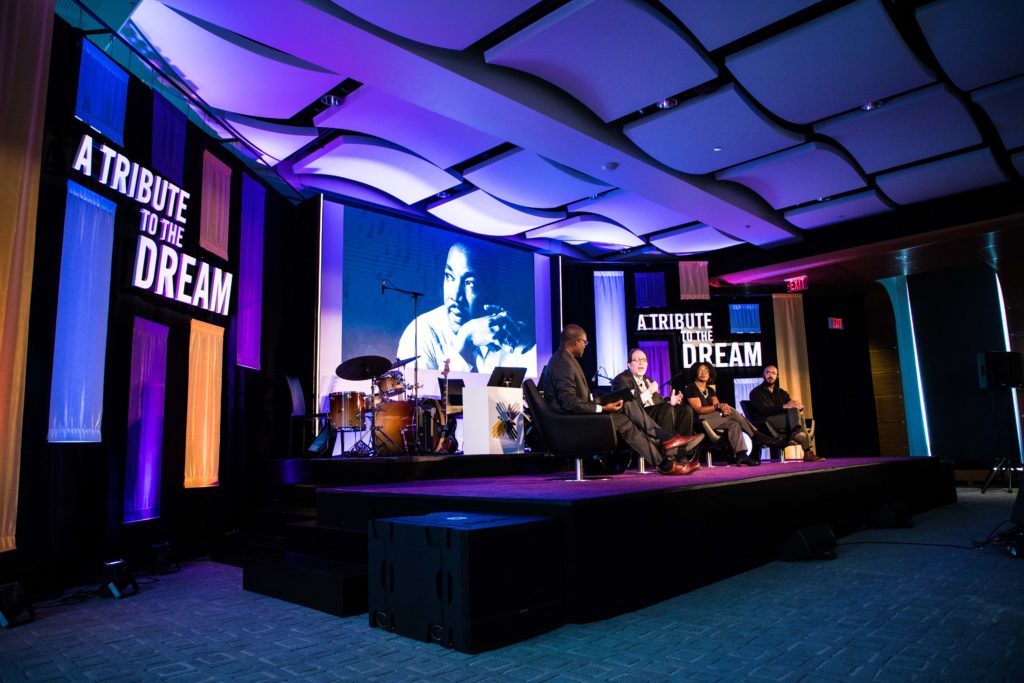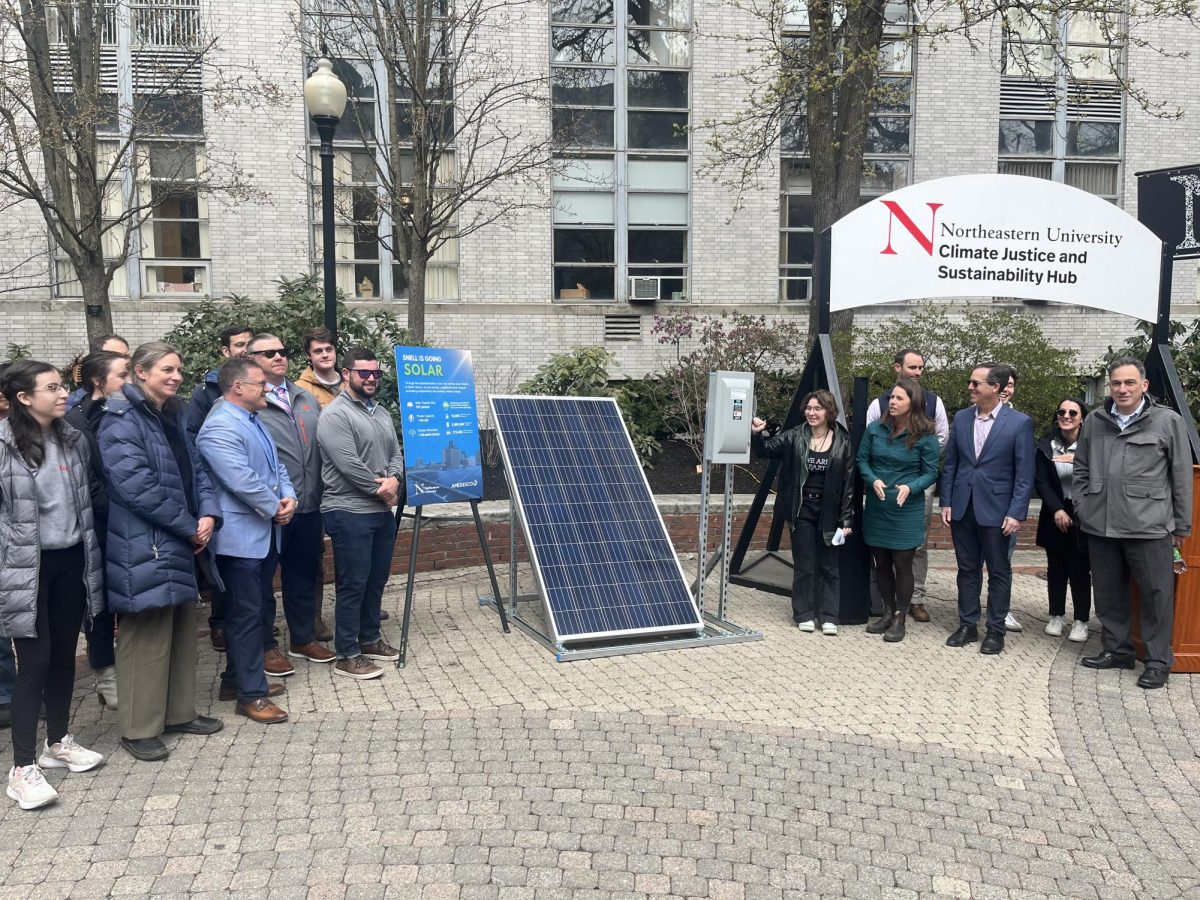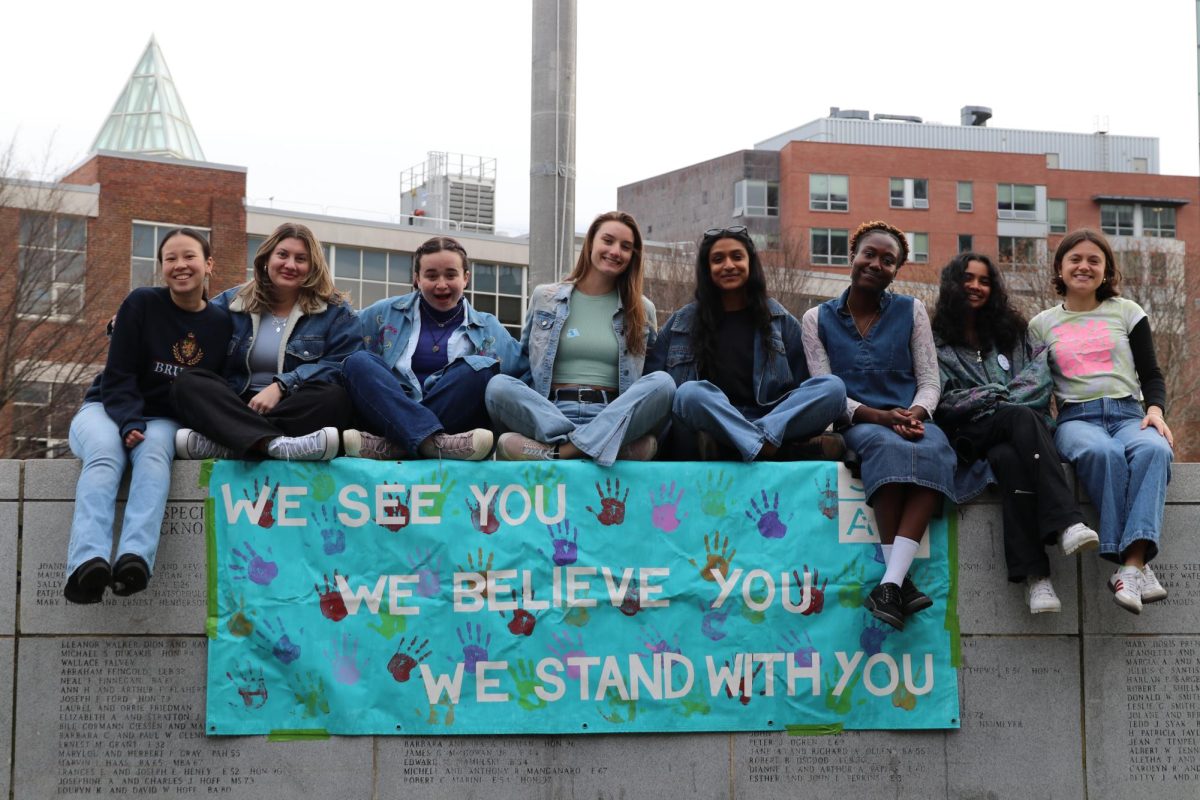By Sam Cronin, news correspondent
Members of the Northeastern community gathered in East Village Tuesday night to celebrate the legacy of Martin Luther King, Jr. and discuss the current climate of race in America with a panel of award-winning members of the media.
The panel began with a famous quote from the late Dr. King, which he wrote in his 1963 book, “Strength to Love.”
“Darkness cannot drive out darkness, only light can do that. Hate cannot drive out hate, only love can do that,” the quote reads.
Panelists included former CNN Boston bureau chief Dan Lothian, Boston Globe reporter Akilah Johnson, Northeastern School of Journalism director Jonathan Kaufman and writer, poet and scholar Clint Smith.
Smith opened the discussion by talking about the perception of racism in society today.
“[There is a] narrow conception of racism, thinking of it as an interpersonal phenomenon,” Smith said. “Racism is not merely interpersonal, it is structural and institutional. For decades black people were not allowed to buy a house.”
He pointed to the statistic that black people make up 13 percent of the nation’s population, but nearly 40 percent of its prison population, though the NAACP lists the figure at 34 percent in its Criminal Justice Fact Sheet.
Smith said President Donald J. Trump is someone engaged in both structural and interpersonal racism. Johnson then went on to discuss Trump’s recent comment on “shithole countries.”
“For at least 12 hours, there was no large wholesale denouncement,” Johnson said.
Some experts think these comments were supported by Trump’s base of voters, but Johnson maintains that the majority of the country doesn’t hold onto those disparaging comments.
“Whom are they governing for?” Johnson asked of the Trump administration. “These comments don’t happen in a vacuum.”
Kaufman emphasized that much of the media missed the rise of Trump, a phenomenon he attributes to a failure of journalists to understand the poor, white demographic.
“[There is] a move in newsrooms to understand white people,” Kaufman said, adding that because of limited resources, there is not a deep understanding of various identities, including those represented in poor and immigrant communities.
Kaufman said there seems to be a trend for major news outlets to treat American politics like a sporting event, especially concerning widespread coverage of Trump’s frequently controversial tweets.
However, he said journalism has the potential to encourage change in society and politics.
“Media coverage is the first step,” he said. “It’s our job to get the facts out there.”
Johnson agreed that the media often treats political news like a competitive sport. She built on Kaufman’s statement about journalism’s role in effecting change in society.
“[The] media, America in general has a fundamental lack of vocabulary in talking about race,” she said. “[It’s] easy to get caught up in the horse race of it.”
Smith also talked about the state of race relations in the country with respect to incarceration, emphasizing the multitudes of black Americans in prison for nonviolent drug offenses. The United States today makes up approximately five percent of the world’s population, and has 21 percent of the world’s prisoners, according to The NAACP’s Criminal Justice Fact Sheet.
Afterward, the panel discussed the unemployment situation in the United States. Lothian pointed to the current unemployment rate of 6.8 percent — the lowest it has been since 1972 — and to the three percent gap between white and black Americans in employment.
Smith also mentioned a Pew Research Center poll in which nearly half of the people questioned said that blacks who can’t get ahead in this country are mostly responsible for their own condition.
On the topic of social media, Johnson said there may be a danger in the problems of inequality being reinforced by the limited range of sources from which people tend to get their information.
“[It] tends to be a conflagration of people ‘like me,’” Johnson said.
She went on to say that, like any media platform, social media is neither entirely good or entirely bad.
“[We] can’t demoralize it entirely,” Johnson said. “Media literacy is what we need to be talking about.”
Nearing the end of the discussion, panelists addressed the Black Lives Matter movement. Smith said the movement has helped reach new levels of conversation on race and that in recent years, the nature of discourse has become more sophisticated.
“[There is] political change with a ‘big P’ or a ‘little p,’” Smith said. “‘Big P’ is policy change, [things like] reducing mass incarceration, reducing school and housing segregation. What shouldn’t be forgotten is cultural change, the ‘little p.’”
After the panel concluded, a film about the recipient of Northeastern’s Dr. Martin Luther King, Jr. Graduate Fellowship, Christina Lerouge, aired. Lerouge, a first-year graduate student concentrating in interactive design, digital media management and animation, emphasized the way her family inspired her, and the role her faith has played in her self-confidence.
Northeastern President Joseph E. Aoun gave a short speech in which he discussed the legacy of Dr. King and noted that he believes international students should not be described as “foreign” — a word he said fosters dissonance.
The event was closed out by a group of student musicians playing a rendition of “The Selma March” by Grant Green.
“We need Dr. King’s message,” Aoun said. “Together we invoke our community ideals of inclusion. We pledge that we’ll arrive at Dr. King’s promised land of inclusion.”














